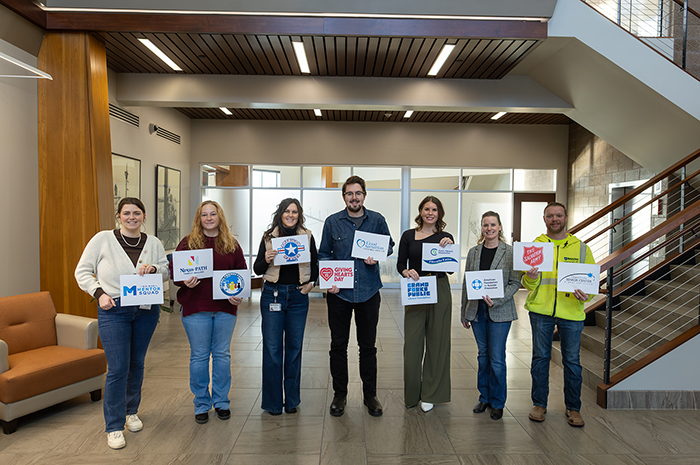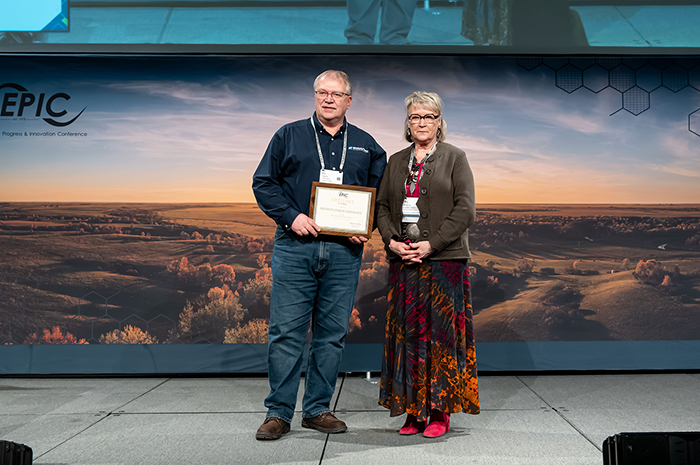Successful sessions
Minnkota and its cooperative members are celebrating major energy legislation recently passed in North Dakota and Minnesota.
Although the North Dakota and Minnesota legislative sessions looked much different in 2021, lawmakers left their respective capitols this spring after passing some of the most impactful energy legislation in years.
Minnkota, its members and partners successfully navigated the sessions, which included many virtual meetings and online advocacy due to COVID-19 restrictions. The pandemic and the related economic impacts were a key focus, but energy issues were also featured prominently.
“We saw strong bipartisan support for our main priorities in both states,” said Stacey Dahl, Minnkota senior manager of external affairs. “While the sessions started with many unknowns due to COVID-19, we ended with our industry in a better position to address the challenges on the horizon.”
ND legislature helps boost lignite industry
In North Dakota, 18 bills were signed into law that support the state’s lignite industry and promote the development of breakthrough energy technologies. Minnkota staff dedicated significant time to advocating for the following priorities, which were passed into law:
- HB1412: Lignite Tax Relief – This bill provides temporary and critical tax relief to the lignite industry by reducing the full amount of the general fund portion from coal conversion taxes paid by the lignite power plant and conversion facility operators for a five-year period. The tax relief is valued at approximately $100 million over five years to the industry broadly, and $20 million for Minnkota’s Joint System specifically.
- HB1452: Clean Sustainable Energy Authority – The legislature created a Clean Sustainable Energy Authority to help position North Dakota as a leader in reducing environmental impacts through a comprehensive research and development authority. The legislation provides $25 million from state’s general fund to the authority to fund qualified projects. Importantly, $250 million in a low-interest loan program was also appropriated, helping to support the commercialization of projects like Project Tundra.
- SB2287: Lignite Insurance Study – Directs the Insurance Commissioner to study and determine whether a program or mechanism could be implemented to provide an alternative for North Dakota’s lignite industry to seek insurance rates that are not skewed against the fossil fuel industry.
- SB2152: 45Q Conformity – This bill conforms the North Dakota Century Code to comply with federal law regarding 45Q tax policy by providing a sales and tax use exemption for carbon dioxide sales related to geologic storage projects.
- SB2137: Data Center Tax Incentive – This bill creates a sales and use tax exemption for data centers. Data centers can require large amounts of electricity and attracting these businesses to our state to grow electric load is beneficial, and a key focus for Minnkota.
“North Dakota is well-positioned to be a world leader in the development of carbon capture, utilization and storage (CCUS) technologies,” Dahl said. “With the strong support provided by the legislature this session, we can help ensure the continued strength and long-term viability of our state’s energy industry.”
ECO Act crosses the finish line in Minnesota
After nearly four years of work, the Energy Conservation and Optimization (ECO) Act, the primary focus for electric cooperatives, was passed into law with strong bipartisan support. The ECO Act reforms and modernizes the existing Conservation Improvement Program (CIP), which did not recognize the benefits of efficient electrification of end-use processes, such as the adoption of electric vehicles and other emerging technologies. Conversely, the ECO Act emphasizes end-use total energy efficiency rather than narrowly focusing on reducing electricity use.
“With more flexibility to recognize and respond to emerging technologies and consumer demands, this is a win-win for our members in Minnesota,” Dahl said.
...



